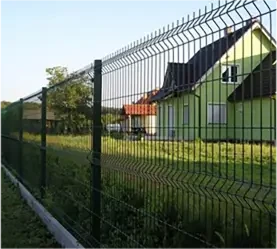The Importance of Noise Barriers in Highways
Highways are essential arteries of modern transportation, facilitating the movement of goods and people. However, the noise generated from high-speed traffic has increasingly become a significant environmental concern. This is where noise barriers come into play. Noise barriers are structures designed to reduce unwanted sound from roadways, and they are crucial for improving both the quality of life and the integrity of the environment in urban and suburban areas.
Understanding Noise Barriers
Noise barriers are typically constructed from various materials, including concrete, wood, and metal, and are strategically placed alongside highways to block sound waves. They work on the principle of sound reflection and absorption; by interrupting the line of sight from the highway to nearby residences or public spaces, noise barriers can effectively attenuate the sound levels that reach these areas. The effectiveness of a noise barrier is influenced by its height, length, and the materials used, as well as the distance from the highway.
Benefits of Noise Barriers
The primary benefit of noise barriers is the reduction of noise pollution, which has been linked to various health issues, including stress, sleep disturbances, and cardiovascular problems. By lowering noise levels, these barriers help create more peaceful living environments for communities situated near busy roadways. This is especially important in urban areas, where high levels of traffic noise can compromise not only health but also property values.
Additionally, noise barriers can enhance safety along highways. By minimizing distractions caused by excessive noise, drivers can maintain better focus, potentially reducing the risk of accidents. Moreover, noise barriers can frequently serve as shields from debris and accidents on the road, further contributing to the safety of both drivers and nearby residents.
noise barrier in highway

Environmental Considerations
Beyond protecting human health, noise barriers can also serve an environmental purpose. Many modern noise barriers are designed with aesthetics and wildlife considerations in mind. They can be planted with vegetation, creating green walls that not only help absorb sound but also provide habitats for urban wildlife. This blending of functionality and ecological awareness is vital in ensuring that infrastructure development does not come at the expense of natural habitats.
Challenges and Solutions
Despite their numerous benefits, constructing noise barriers does present certain challenges. The initial cost, maintenance, and the impact on local ecosystems are significant considerations. However, advancements in technology have introduced innovative materials and designs that can mitigate these issues. For instance, recycled material barriers can provide cost-effective solutions while promoting sustainable practices. Additionally, ongoing maintenance can be streamlined through the use of durable materials engineered to withstand harsh weather conditions and reduce wear over time.
Conclusion
As urban areas continue to grow and highways expand, the importance of noise management becomes increasingly clear. Noise barriers represent a proactive approach to mitigating the effects of traffic noise, thereby safeguarding community health, enhancing safety, and preserving environmental integrity. Investing in these structures is not just about reducing sound; it’s about fostering livable, thriving communities that can coexist harmoniously with the bustling infrastructure that serves them. By prioritizing noise barriers in highway planning and construction, we can create a quieter, safer, and healthier future for all.
-
Why Galvanized Trench Cover Steel Grating Resists Corrosion
NewsJul.10,2025
-
The Versatility and Strength of Stainless Expanded Metal Mesh
NewsJul.10,2025
-
Load Calculations in Steel Grating Platforms
NewsJul.10,2025
-
Keeping Pets and Kids Safe with Chicken Wire Deck Railing
NewsJul.10,2025
-
Hole Diameter and Pitch for Round Perforated Metal Sheets
NewsJul.10,2025
-
Aluminium Diamond Mesh in Modern Architecture
NewsJul.10,2025
Subscribe now!
Stay up to date with the latest on Fry Steeland industry news.

